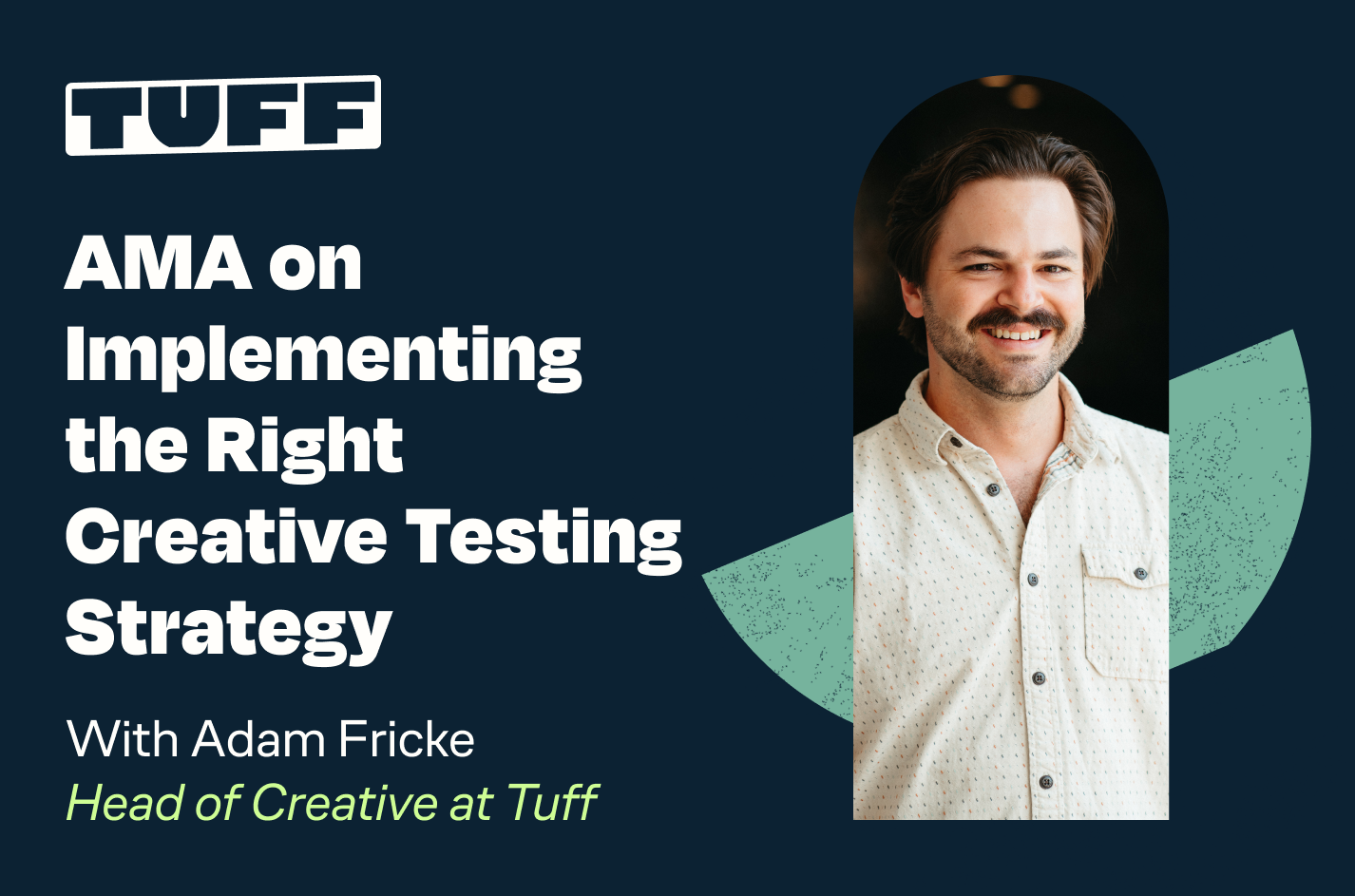Top 5 Common PPC Questions Our Paid Acquisition Expert Answers
Running paid ads on Google, Facebook, and various other paid platforms is often new and exciting to any business owner looking to crack into new sources of leads. In my role as a Paid Advertising Specialist at Tuff, I partner with CMOs and business owners and get the opportunity to answer their initial questions when getting started. Here are the most common PPC questions and responses to those questions.
Let’s dive in!
1. Is PPC right for my business?
This is a big one, the most high level of common PPC questions. Owners and entrepreneurs have seen ads all over the internet and usually have fair concerns about the validity and effectiveness of them. I look to a few specific things to answer this question:
What industry are you in?
The type of business you operate is of big concern to me. If you are a niche business with no competition and Keyword traffic, PPC is a great fit for you. If you are a brand new Real Estate Investor in a crowded NYC market that has a ton of expensive competition, PPC would be a tough nut to crack. Usually clients fall somewhere in the middle and it’s my job to find the sweet spot in the market space.
Do you have systems in place to handle leads?
It’s not a great experience for potential customers if there isn’t a sales funnel or process in place to convert this new channel of incoming leads. It’s important to ask yourself, does my business have a reliable CRM? Will my business be able to provide a reasonable amount of creative flexibility with landing pages to test new traffic? Do we have a reliable IT process?
How much traffic is out there for you?
This might be the most important starter question. I always check if there is enough traffic out there looking for exactly what your business does, using Keyword tools like Keyword Planner, and SpyFu. Bottom line, if there’s not enough traffic PPC might not be the answer. Traffic doesn’t just mean Keyword impressions, it could also include audience groupings for display, youtube, facebook, etc. If there aren’t market segments that exist already, you would essentially be creating a market, and for a lot of business owners the capital to do that is limiting.
2. How much should I spend?
This usually comes on the heels of agreeing that PPC is right for you. Now, it’s time for me to align PPC expectations:
What are your goals?
There is a big difference between looking for engagement to drive leads and looking to drive sales of a very expensive online item through paid ads. This question is an opportunity for me to set realistic expectations based on experience and traffic estimates. This is also a great time to be more specific about how we plan to turn cold traffic into warm traffic through blogs, white papers, videos, etc. This is where an experienced PPC manager will explain that turning extremely cold traffic into a sale through one ad and landing page might be too big of an ask.
What is the lifetime value of your customers?
The lifetime value of your customer is an important metric to track. This metric should be ingrained within the decisions you make about balancing your own books. Knowing the lifetime value also helps a PPC manager assess how much we should spend to get a lead and customer or sale through the paid advertising.
Knowing these two things helps me set a baseline budget for testing and makes sure I’m optimizing my campaigns against the right ROI targets.
3. What will I get in return?
So, we’ve decided PPC is right for you and set a budget for testing. Then, we dive into some more questions:
What are you hoping to get in return?
When it comes to maximizing your results with PPC, the first step is to identify an ROI target. While this can be difficult to track, it’s one of the most important KPIs for your business and advertising health. During this stage, I work with you to set reasonable lead and ROI targets.
What are your historic conversion rates from traffic to lead?
This is a necessary metric to know as a PPC manager. With these historic numbers, I can set a baseline for your PPC performance. If conversion rates are too low based on PPC traffic, your targeting isn’t hot enough.
What are your historic conversion rates from Lead to Sale?
Similar to above, this metric is important to grade the continuity of your marketing efforts from ad to sale. If you are getting a ton of leads but no sales, a) your ads aren’t in line with the messaging on site, or b) the site in general isn’t great at converting colder traffic. As an end-to-end growth agency, we love analyzing if it’s a or b and can help optimize either.
With all the above, you can forecast some average conversion rates and some very conservative numbers on what you can expect from the PPC efforts.
4. What platforms should I be on?
This is where we breakdown the platforms for our clients and help them select the right channels to reach their goals. As a general rule, if the objective is brand awareness, we’ll typically start with Facebook, Instagram, or Pre-Roll YouTube ads. Video is an excellent ad format when it comes to reach and impressions, so we’ll often push for this type of creative asset to maximize brand lift.
If you’re bootstrapped and on budget looking to drive leads, conversions, or sales, we often launch search campaigns on Google and Bing knowing these might be more expensive clicks, but should convert at a higher rate than other platforms since users are actively searching for a solution or product. In other words, the search intent is higher.
Selecting the right platform to reach your objectives is one of the single most important pieces of the strategy phase. And, in the ideal world, we leverage a handful of PPC channels to reach potential customers at every stage of the buyer funnel – from awareness, consideration, and conversion with a variety of ad formats and retargeting.
5. I see my competition all over the internet. How can I do that?
You’re right to think that way. If your competition is doing it they’re taking money off the table. We like to investigate a little further with this common PPC question:
Is copying your competition best? (Think USP)
Any PPC manager should remind you that copying the competition isn’t always the best strategy. Maybe they’re doing a great job and you can borrow a thing or two, but ultimately, they are separate businesses with separate Unique Selling Propositions that should be built into the ads.
Are they bidding on your brand?
If competition is bidding on your brand terms you should 100% get into the game. That other business is stealing business from you, bottom line. From personal experience, businesses have had shut their doors because other digital marketers have cannibalized their brand terms online.
Are they across all platforms?
This is great to research because it can yield opportunities for an account manager. What if a business is slaying it on Amazon but not on Google? What if a huge brand is owning Google but not on Bing, and that competitor can bid on their brand terms? What if none of them are on FB?
We’d love to work with you.
Schedule a call with our team and we’ll analyze your marketing, product, metrics, and business. Then, present a Growth Plan with actionable strategies to find and keep more engaged customers.

Ellen is the founder at Tuff and one of the team’s core growth marketers. She is a versatile marketer with expertise in multiple channels – from ppc to seo to email to others – responsible for the experiments and testing. She is happiest when she’s on the ski hill or outside pointing her mountain bike downhill.







